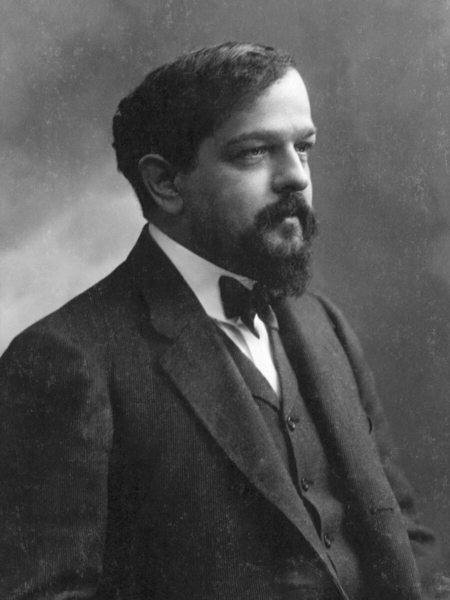Claude Debussy (1862–1918)
Der französische Komponist Claude Debussy stellt mit seiner Musik ein Bindeglied zwischen Romantik und Moderne dar.
Debussy studierte am Pariser Konservatorium Klavier- und Komposition und betätigte sich nebenher als Liedbegleiter. 1883 wurde er mit dem Prix de Rome ausgezeichnet. Während Debussys frühe Werke noch an Formen des 19. Jahrhunderts angelehnt waren, wurde er später in besonderem Maße vom lyrischen Symbolismus und dessen Vertretern wie Mallarmé, sowie von Malern des Impressionismus beeinflusst.
Seine „Prélude à ,L’après-midi d’un faune‘“ bedeutete für Debussy 1894 den Durchbruch als Komponist. In der Folge komponierte er weitere Werke für Orchester (darunter La Mer und die Trois Nocturnes), Klaviermusik und zahlreiche Liederzyklen, in denen vielfältige Musikstile und deren typischen Klänge zum Ausdruck kommen. In der Musik Debussys rückt motivisch-thematische Arbeit zu Gunsten einer intensiv ausgearbeiteten Klangfarbe in den Hintergrund. Neben klassischer Dur-Moll-Harmonik verwendet er Ganztonskalen, Pentatonik und Kirchentonarten.









